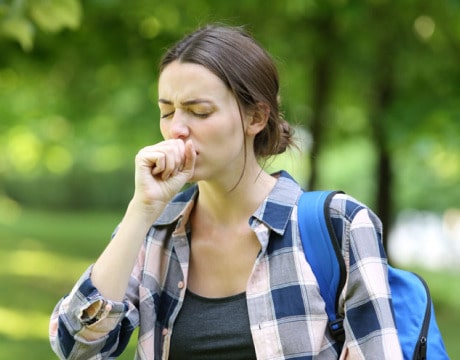If you’re living with allergies, you know the symptoms can be unpleasant. Having difficulty breathing or painful congestion can make it hard to fully participate in daily activities, whether that’s work or spending time with family and friends. At Collin County ENT, we offer allergy testing and proven treatment plans to ease your seasonal or year-round symptoms.
There’s a lot of treatment options out there. We don’t have to accept that it’s just Texas allergies, or that this is the way of life. There’s a lot of things that we can do to improve quality of life. We have a lot of tools in our toolbox that are minimally invasive and that patients can recovery from very quickly. It’s worth exploring what everyone’s options are.
Dr. Tony Peter
When Should I See an Allergist?
- Over-the-counter medications don’t effectively manage your symptoms.
- Allergies make it difficult to breathe, cause congestion or sinus infection.
- Allergies or asthma interfere with your quality of life or daily activities.
- You experience seasonal allergy or hay fever symptoms.
- Your asthma is not well controlled.


How Can I Start Allergy Treatment?
1. Schedule an Appointment
You don’t have to deal with uncomfortable allergy symptoms without any outside support. Scheduling an appointment with one of our allergy specialists is your first step toward finally finding relief.
2. Undergo Allergy Tests
To provide you with the best treatment, we’ll need to determine the specific triggers of your allergies. Allergy tests include:
- Skin prick test
- Intradermal test
- Blood test
3. Create a Treatment Plan
Our provider will work with you to build a customized treatment plan for your individual needs. Depending on the cause of your symptoms, allergy treatments might include prevention, medication or immunotherapy.
- Prevention involves avoiding contact with the allergen that triggers your symptoms.
- Medications include antihistamines, decongestants, nasal sprays, eye drops and corticosteroids.
- Immunotherapy involves building up a tolerance to an allergen by introducing it to the body in small doses over time through shots, drops or tablets.
Find Relief Today
Navigating allergy treatment may seem like a complicated process. You might wonder why over-the-counter medications don’t work for you or where to start when it comes to working with an allergist. At Collin County ENT, we can answer these questions and others that may be on your mind. Our collaborative, patient-centered process will allow you to breathe easier, knowing you’re getting the best possible care.

